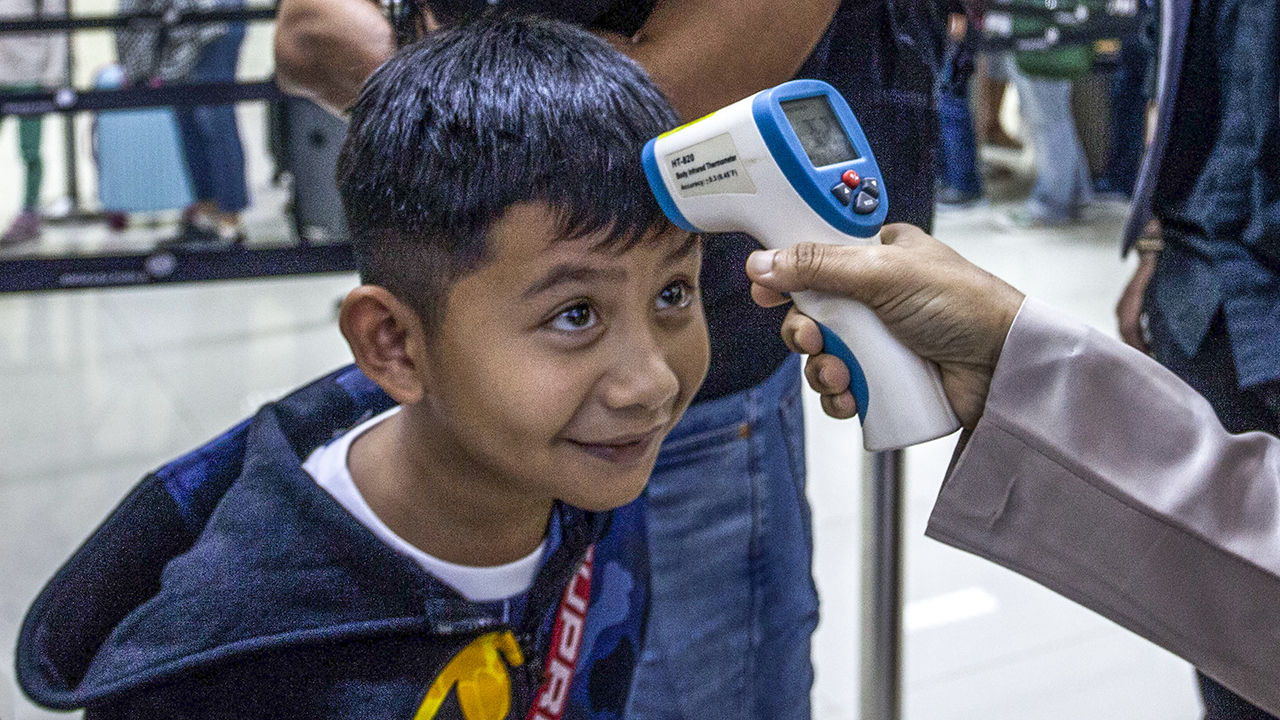Immunity to Covid-19 could be lost in months, UK study suggests
- Nayadiganta English Desk
- 13 July 2020, 14:40
People who have recovered from Covid-19 may lose their immunity to the disease within months, according to research suggesting the virus could reinfect people year after year, like common colds.
In the first longitudinal study of its kind, scientists analysed the immune response of more than 90 patients and healthcare workers at Guy’s and St Thomas’ NHS foundation trust and found levels of antibodies that can destroy the virus peaked about three weeks after the onset of symptoms then swiftly declined.
Blood tests revealed that while 60% of people marshalled a “potent” antibody response at the height of their battle with the virus, only 17% retained the same potency three months later. Antibody levels fell as much as 23-fold over the period. In some cases, they became undetectable.
“People are producing a reasonable antibody response to the virus, but it’s waning over a short period of time and depending on how high your peak is, that determines how long the antibodies are staying around,” said Dr Katie Doores, lead author on the study at King’s College London.
The study has implications for the development of a vaccine, and for the pursuit of “herd immunity” in the community over time.
The immune system has multiple ways to fight the coronavirus but if antibodies are the main line of defence, the findings suggested people could become reinfected in seasonal waves and that vaccines may not protect them for long.
“Infection tends to give you the best-case scenario for an antibody response, so if your infection is giving you antibody levels that wane in two to three months, the vaccine will potentially do the same thing,” said Doores. “People may need boosting and one shot might not be sufficient.”
Early results from the University of Oxford have shown that the coronavirus vaccine it is developing produces lower levels of antibodies in macaques than are seen in humans infected with the virus. While the vaccine appeared to protect the animals from serious infection, they still became infected and may have been able to pass on the virus.
Speaking on Sky News, Prof Robin Shattock of Imperial College London said a competing vaccine developed by his group could be available in the first half of next year if clinical trials go well. But he cautioned there was “no certainty” any of the vaccines in development would work, and said it is still unclear what kind of immune response is needed to prevent infection.
The King’s College study is the first to have monitored antibody levels in patients and hospital workers for three months after symptoms emerged. The scientists drew on test results from 65 patients and six healthcare workers who tested positive for the virus, and a further 31 staff who volunteered to have regular antibody tests between March and June.
The study, which has been submitted to a journal but has yet to be peer-reviewed, found that antibody levels rose higher and lasted longer in patients who were severe cases. This may be because the patients have more virus and churn out more antibodies to fight the infection.
There are four other types of coronavirus in widespread circulation, which cause the common cold. “One thing we know about these coronaviruses is that people can get reinfected fairly often,” said Prof Stuart Neil, a co-author on the study. “What that must mean is that the protective immunity people generate doesn’t last very long. It looks like Sars-Cov-2, the virus that causes Covid-19, might be falling into that pattern as well.”
Prof Jonathan Heeney, a virologist at the University of Cambridge, said the study confirmed a growing body of evidence that immunity to Covid-19 is short-lived. “Most importantly, it puts another nail in the coffin of the dangerous concept of herd immunity,” he said.
“I cannot underscore how important it is that the public understands that getting infected by this virus is not a good thing. Some of the public, especially the youth, have become somewhat cavalier about getting infected, thinking that they would contribute to herd immunity. Not only will they place themselves at risk, and others, by getting infected, and losing immunity, they may even put themselves at greater risk of more severe lung disease if they get infected again in the years to come.”
But Prof Arne Akbar, an immunologist at UCL, said antibodies are only part of the story. There is growing evidence, he said, that T cells produced to fight common colds can protect people as well. Those patients who fight the virus with T cells may not need to churn out high levels of antibodies, he added.
Shattock said the study was important and indicated that neutralising antibodies rapidly wane. “This certainly suggests that we cannot be confident natural infection will be protective for a significant proportion of individuals, nor certain of the duration of any protection.”
He added: “We would however expect that re-infection would be less severe for any individual as they will still retain immune memory allowing them to more rapidly respond. Nevertheless they could still be a source of onward transmission.
“It does indicate that vaccines need to do better than natural infection, providing consistent responses in the majority of individuals and sustained levels of protective antibodies. Ultimately this may require the use of annual boosting immunisations, particularly for the most vulnerable. This could be delivered alongside annual influenza immunisations.”
Source: The Guardian
More News
-
- ৫ঃ ৪০
- খেলা
-
- ৫ঃ ৪০
- খেলা
-
- ৫ঃ ৪০
- খেলা


